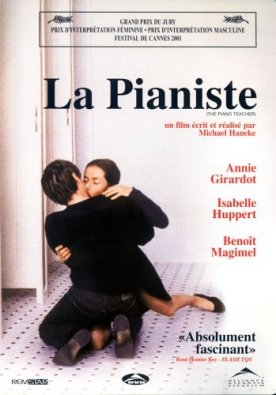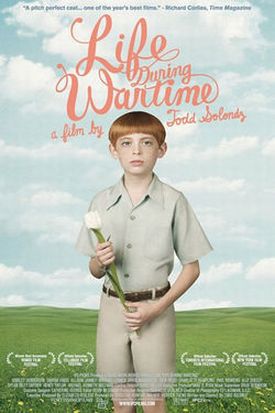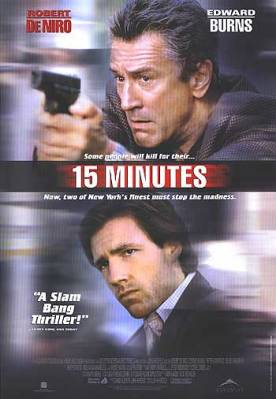Piano Teacher, The (La Pianiste)
Like Michael Haneke’s earlier film, Funny Games (q.v.), The Piano Teacher is disturbing in spite of being — or perhaps because of being — not quite a serious film. In the other movie the deadly serious scenario of the family-kidnap drama was treated with a weird variety of postmodern playfulness that couldn’t but seem completely inappropriate but that, nevertheless, like the so-called “comic relief” in Shakespeare’s tragedies, somehow managed to make the horror even more horrible. In The Piano Teacher the exploration of another serious theme, that of the connection between power relationships and suffering chic, is similarly both marred and enhanced by a descent into pathography. I’m still not quite sure what to make of either film, except to say that Haneke is forging a unique and individual cinematic style that seems to owe something to the surrealist fascination with dreams and nightmares but without any of the self-indulgent phantasmagoria associated with surrealist cinema.
Here is the story. A spinster piano teacher called Erika Kohut (Isabelle Huppert), now in her 40s and living with her mother (Annie Girardot) in Vienna, is gradually revealed to the viewer as having a solitary but brutally perverted sex life. This she keeps hidden from the world of the conservatory, where she appears as cool, cerebral, emotionless, severe. Her students are terrified of her. We associate that kind of pedagogical authority with moral authority, moral superiority. But the stronger she is the weaker she is in terms of an art that — at least as she appears to understand it — prizes suffering above all. When a good-looking young man of enormous talents called Walter Klemmer (Benoît Magimel) says he wants to study with her she is at first scornful. He cannot be a musician with looks like his, she thinks, because he will never suffer.
She, meanwhile, is prepared to ensure that she herself does suffer. She mutilates her genitals with a razor blade and subjects herself to various humiliations as a voyeur. When it becomes clear that Walter has a crush on her, she has the idea of including him in her private sexual game — at first by continuing in her role as stern task-mistress, a kind of dominatrix, but then writing him an extraordinary letter in which she expresses her wish to be completely dominated herself. We are to understand, I think, that this longing for suffering is intimately connected with her love of music and perhaps also to her relationship with her mother, in which the latter’s passive-aggression is constantly being employed for manipulative purposes.
This relationship between mother and daughter is only an extreme version of one that is familiar between mothers and daughters and in which suffering becomes a means of domination. The game that is played between them casts the mother in the role of sufferer and her strong, competent daughter as her alleged persecutor — this persecution consisting only of trying to live her own life. It is not entirely clear why the two women actually sleep in the same bed. Perhaps we are meant to see this as part of the daughter’s acquiescence in her mother’s emotional tyranny, but thematically it has the important function of preparing us for the venture into explicitly sexual territory.
It is, in other words, a movie about perversion, and to that extent risks becoming merely bizarre and irrelevant — not a proper work of art at all but a case study for shrinks or voyeurs like, say, David Cronenberg’s Crash. But the connection of this particular perversion not so much with some kind of psychic disturbance as with the power struggle between men and women, parents and children — and perhaps, afar off, even social classes (a reference to Theodor Adorno’s essay on Schumann’s C major fantasy and to the suggestion of the tenacity of the bourgeoisie in one passage of a Schubert song are the only indications of a political subtext that is otherwise implicit) — all this lifts the drama of perversion and psycho-sexual disorder onto a new plane of significance.
Or does it? For much as I want to believe that Haneke succeeds in his larger purposes, I can’t quite see it. There is a certain falseness to everything that happens after Walter reads the letter and says: “You’re sick. You need treatment.” This is so clearly the case that the sheer weight of its obviousness holds down Haneke’s subsequent attempts to lift the material above its merely prurient and sexual origins. Walter’s being drawn into the pervert’s game, his humiliating and finally raping Erika, is likewise false. “Is it like you imagined?” he taunts her after knocking her down. No, she says, terrified. And yet she has invited this treatment. What did she think would happen?
But perhaps this is an indication that the film is really about the difference between the rhetoric of suffering, which is so much a part of our lives — whether in music or in love or in pornography or in politics or in the games one plays with one’s mother — and the reality of suffering. The latter always haunts the former, here as in real life, and Erika is constantly trying to reconnect the two, particularly in the rather surprising ending, not revealed here. One way or another she means to claim the championship belt as world’s greatest sufferer, and the power that goes with it. This is how, though it is also a film about sexual perversion, it connects itself with real life. Music, too, at the highest level can be seen as a kind of perverted attempt to reach unto a supremacy of suffering, a romantic nobility whose obscene counterpart lies in sexual humiliation and masochism.
But I can’t help thinking that, as Horatio said to Hamlet’s speculation about someone’s using the dust of Alexander the Great to stop a bung-hole: “‘Twere to consider too curiously to consider so.” It’s not that it’s not true; it’s that it is too reductive of human potentiality.
Discover more from James Bowman
Subscribe to get the latest posts to your email.







